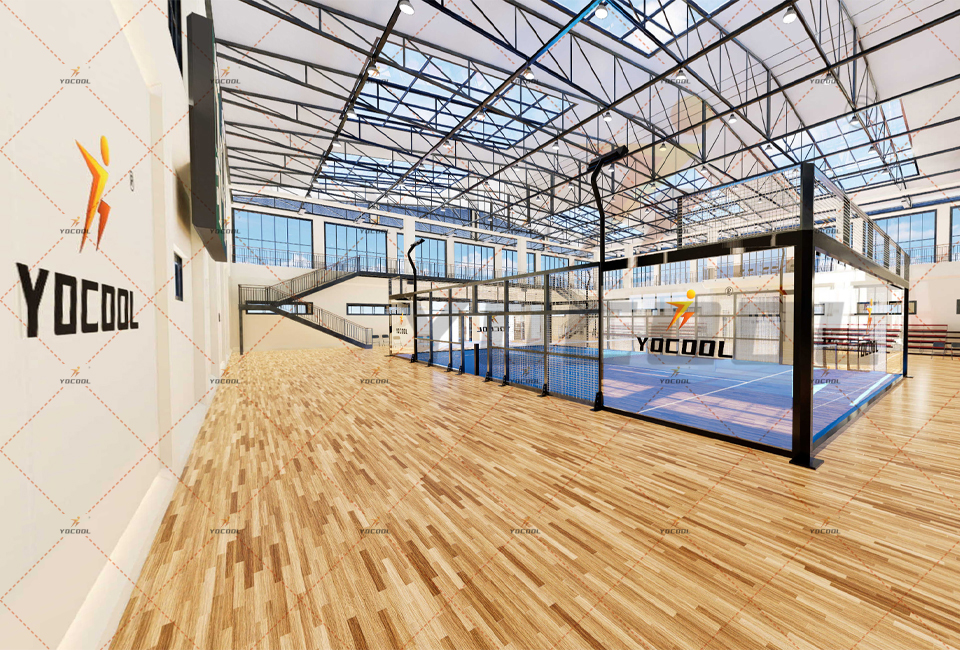

The Cost of Building a Padel Court Insights from Manufacturers
Padel, a fast-growing racquet sport combining elements of tennis and squash, is gaining popularity worldwide. As more enthusiasts seek to indulge in this engaging activity, the demand for padel courts is on the rise. Building a padel court is not merely about marking out a playing area; it involves significant planning and investment. Understanding the costs involved in constructing a padel court can help potential investors make informed decisions.
Factors Influencing the Cost of Padel Court Construction
Several factors influence the overall cost of building a padel court, ranging from location and materials to court specifications and labor costs.
1. Type of Construction The fundamental aspect of any court construction is the type of materials used. Padel courts can be constructed using different materials such as glass, steel, or a combination of the two. Glass is favored for its aesthetic appeal and visibility, particularly in indoor setups. However, it comes with a higher price tag. Steel structures, while more economical, may not provide the same level of finish.
2. Dimensions and Design The standard size for a padel court is about 20 meters long and 10 meters wide, but additional space is required for safety zones and spectator areas. Custom designs can also increase costs, as bespoke courts may require additional architectural planning and unique materials.
3. Surface Material The court surface can significantly impact playability and maintenance costs. Artificial turf is a common choice due to its durability and performance characteristics. However, the cost can vary based on the quality of turf chosen, with some specialized options being more expensive.
4. Lighting and Amenities For outdoor courts, quality lighting is crucial for evening play, which can add to the overall expense. Additionally, amenities such as benches, nets, and fencing must be considered. The installation of seating areas, showers, or lockers can make the venue more appealing to players but will also increase the investment required.
5. Site Preparation and Landscaping Preparing the site can involve significant costs depending on the terrain. Leveling the ground, drainage solutions, and landscaping can add to the total expense. Proper site preparation is essential to ensure the longevity and usability of the court.

6. Labor Costs Labor costs can vary significantly based on location, regional rates, and the experience level of the constructors. Hiring a reputable contractor with experience in constructing sports facilities is advisable, as they can ensure that the court meets all necessary standards.
7. Regulatory Compliance Building permits and compliance with local regulations can add additional costs that are often overlooked in the initial budget. It's essential to research local building codes and regulations to avoid any fines or issues later on.
Estimated Costs
Considering the above factors, the estimated costs for building a padel court can range widely. On average, prices can range from $20,000 to $80,000. A basic outdoor padel court with a simple design, moderate materials, and minimal amenities may cost around $25,000. In contrast, a high-end indoor court with quality finishings, advanced lighting systems, and custom features can easily exceed $70,000.
Manufacturer Insights
Manufacturers play a vital role in shaping the cost landscape for padel courts. They can offer insights into materials, innovations in court design, and even financing options. Engaging with manufacturers who specialize in padel courts is beneficial, as they often provide packages that include everything from construction to maintenance.
Moreover, manufacturers are increasingly introducing eco-friendly materials and designs that appeal to environmentally conscious investors. These sustainable approaches may have an initial higher cost but can result in lower long-term maintenance and operational expenses.
Conclusion
Investing in a padel court offers a unique opportunity for business ventures and personal enjoyment alike. By understanding the various factors influencing construction costs and engaging with established manufacturers, investors can make informed decisions that align with their budget and goals. Ultimately, building a padel court is not only about the initial investment but also about creating a space for community engagement, health, and enjoyment for years to come.
High-Performance Industrial Flooring Solutions China Paddle Tennis Court for Sale
High-Performance Industrial Flooring Solutions Durable & Cost-Effective
Homogeneous Transparent Floor – Durable & Stylish Rubber Floor Solutions
Premium Homogeneous Transparent Floor for Durable & Stylish Spaces Rubber Floor Solutions
Premium Sports Floor Solutions Durable PVC Sports Floor & Rubber Floor for Gyms
Durable Rubber Composite Floor Premium Rubber Floor & Mats Solutions